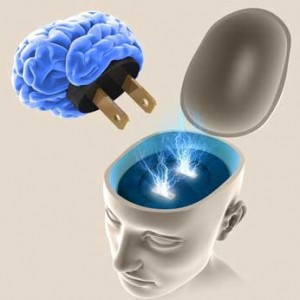The Science of Building a Better Brain
 Newsweek did a great job of summarizing the findings from the cognitive enhancement strategies workshop held at the 2010 annual meeting of the Society of Neuroscience. The article, Can You Build a Better Brain? uses the latest neuroscience to differentiate between techniques that work and those that don’t. Techniques for improving brain function and enhancing cognitive performance that have strong scientific support include:
Newsweek did a great job of summarizing the findings from the cognitive enhancement strategies workshop held at the 2010 annual meeting of the Society of Neuroscience. The article, Can You Build a Better Brain? uses the latest neuroscience to differentiate between techniques that work and those that don’t. Techniques for improving brain function and enhancing cognitive performance that have strong scientific support include:
- Drugs that boost dopamine levels such as caffeine
- Regular aerobic exercise
- Meditation training
- Activities that boost mood and confidence
- Action-oriented video games
- Cognitive training software but only for the tasks done using the software
All of these techniques have been covered in the Next Brain Blog. Techniques that don’t appear to have strong evidence include, and I quote:
“Vitamins B6, B12, and E; beta carotene; folic acid; and the trendy antioxidants called flavenoids are all busts, and the evidence for alcohol, omega-3s (the fatty acids in fish), or having a large social network is weak. The Mediterranean diet is associated with a lower risk of cognitive decline, find observational studies, but that hasn’t been confirmed in more rigorous, randomized controlled studies, and no one knows whether the benefit comes from what the diet includes (olive oil, fish, vegetables, wine) or what it excludes (red meat, refined sugars, dairy fat). Statins don’t help, and neither do estrogen or NSAIDs (aspirin, ibuprofen).”
Although some of these have supporting studies they lack a clear causal connection to brain plasticity or other currently understood mechanism of cognition.

.…
thanks for information….
.…
thanks!…
.…
thanks for information….
.…
tnx for info!…
.…
??? ?? ????….
.…
thanks for information!!…
.…
thanks!…
.…
???….
.…
ñïàñèáî çà èíôó!!…
.…
áëàãîäàðåí!!…
.…
áëàãîäàðþ….
.…
good!!…
.…
good info!…
.…
ñïñ….
.…
ñïàñèáî!!…
.…
áëàãîäàðåí!…
.…
ñýíêñ çà èíôó!!…
.…
ñïàñèáî çà èíôó….